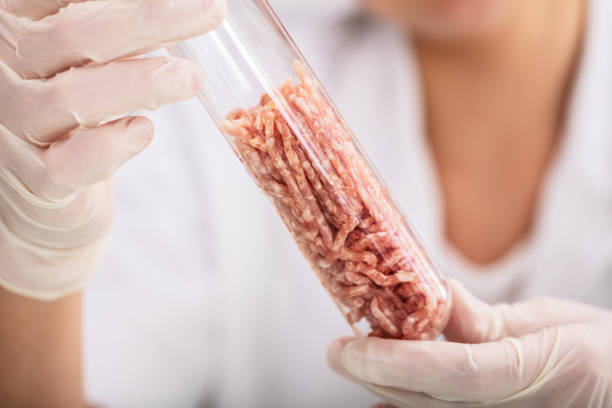Factories breaching such rules can be subject to fines of up to 150,000 euros ($162,700)
ROME (Reuters) - Italy's lower house of parliament gave final approval for a law banning the use of laboratory-produced food and animal feed on Thursday as angry farmers confronted a group of centrist lawmakers opposed to the bill.
The proposal, already approved by the upper house Senate, passed by 159 votes in favor to 53 against, prohibiting the use, sale, import and export of food and feed "from cell cultures or tissue derived from vertebrate animals".
Factories breaching such rules can be subject to fines of up to 150,000 euros ($162,700) and risk being shut down, while owners may lose their right to obtain public funding for up to three years.
The proposal of Agriculture Minister Francesco Lollobrigida, a close aide of Prime Minister Giorgia Meloni, is seen as part of a broader bid by the rightist coalition to safeguard tradition.
As the debate in parliament was under way, tensions erupted between demonstrators from agricultural lobby group Coldiretti and two opposition lawmakers, one of whom claimed the president of the lobby group, Ettore Prandini, had assaulted him.
"I believe it is subversive that the president of Coldiretti believes he can assault a lawmaker," lawmaker Benedetto Della Vedova said, adding he would report Prandini to police. Della Vedova appeared to have been pushed in the chest in the incident but was not hurt.
Prandini told Reuters the lawmakers had provoked the farmers with offensive banners, and played down the confrontation.
The +Europa party and other opposition groups depicted the right-wing's administration move as an attempt to please farmers and breeders' lobbies, as lab-grown food is not yet available in the European Union.
Critics of the bill say producing meat without breeding animals would limit greenhouse gas emissions and provide an option for consumers who would appreciate eating a product that does not involve slaughter.
The opposition warned the government risked breaching EU single market rules by unilaterally banning the product in case the bloc ever decided to make lab food available.
Minister Lollobrigida reiterated the ban was needed to protect the food industry.














